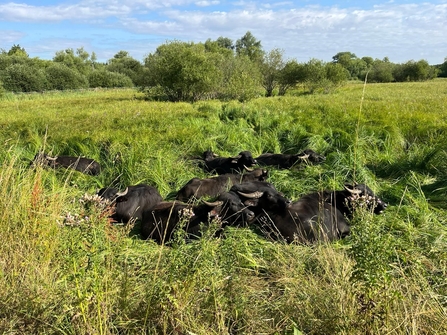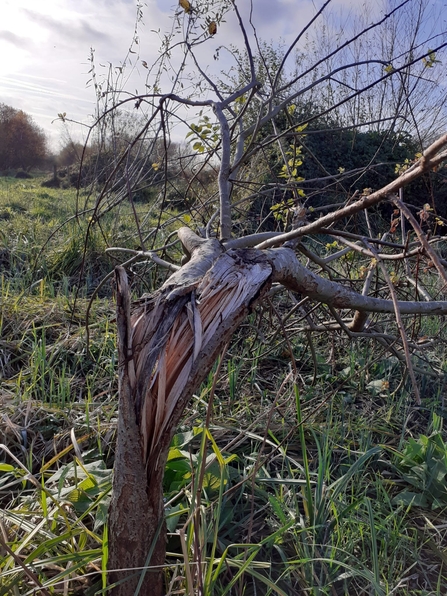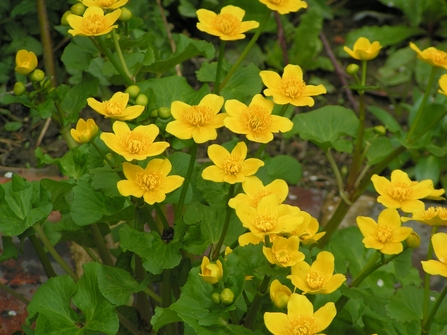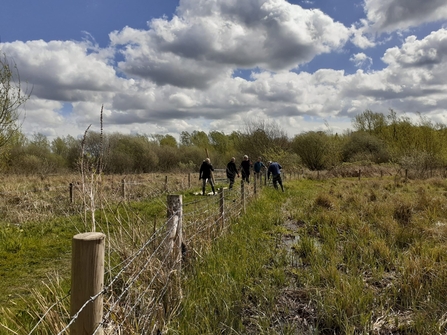A herd of Water Buffalo have returned to Thorley Wash Nature Reserve for the third successive summer. Although an unusual sight to see in the Hertfordshire countryside, local wildlife charity, Herts and Middlesex Wildlife Trust consider the animals to be the best livestock option to graze the 13-hectare wetland site.
Thorley Wash Nature Reserve is nestled between the River Stort navigation and the Stort backwater, near to the village of Spellbrook, and to the south of Bishop’s Stortford. Formerly known as Thorley Flood Pound, Thorley Wash is designated as a Site of Special Scientific Interest (SSSI). It is a great example of a fen habitat and with 99% of fen habitat having been lost in the UK, it is a real rarity in Hertfordshire.




